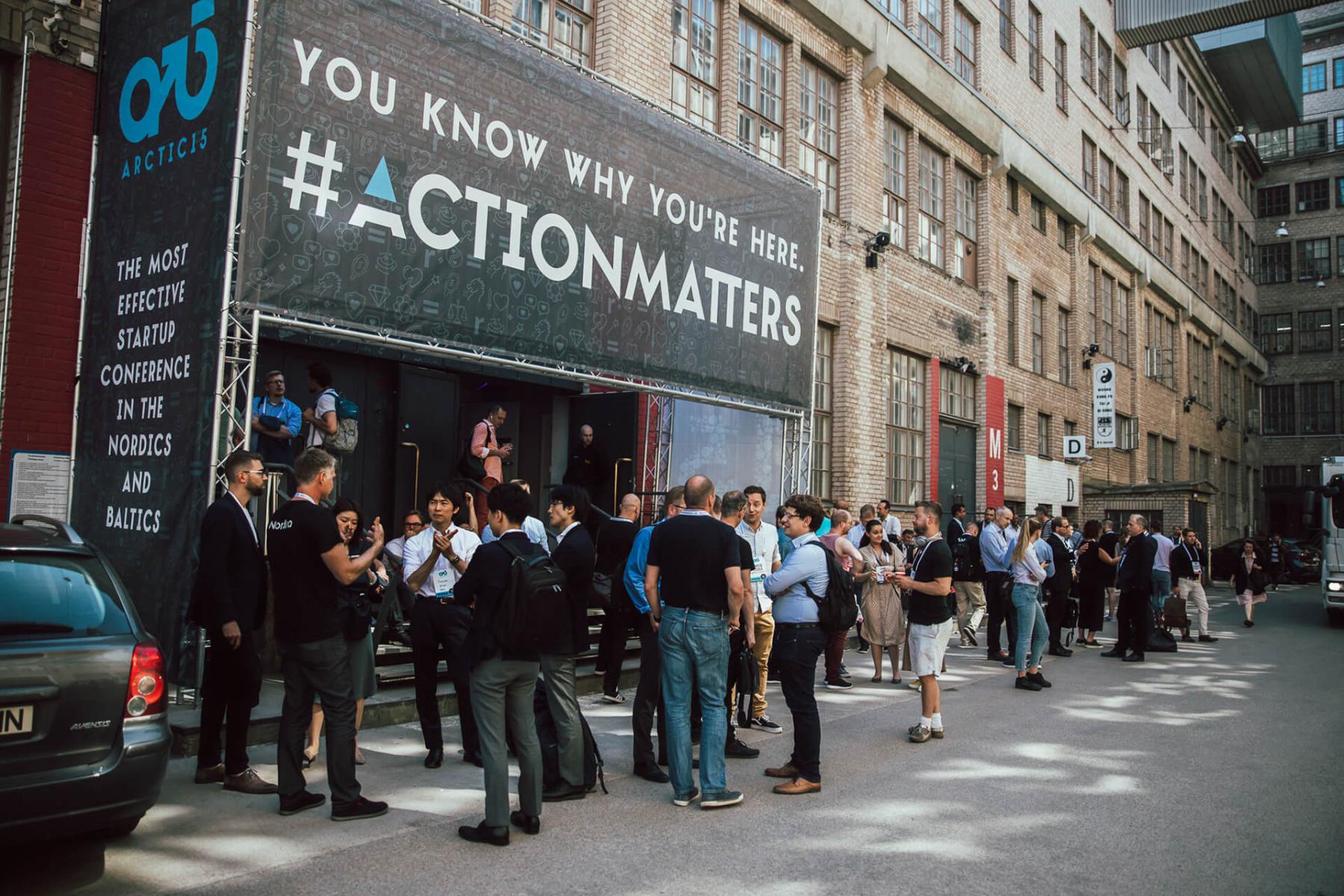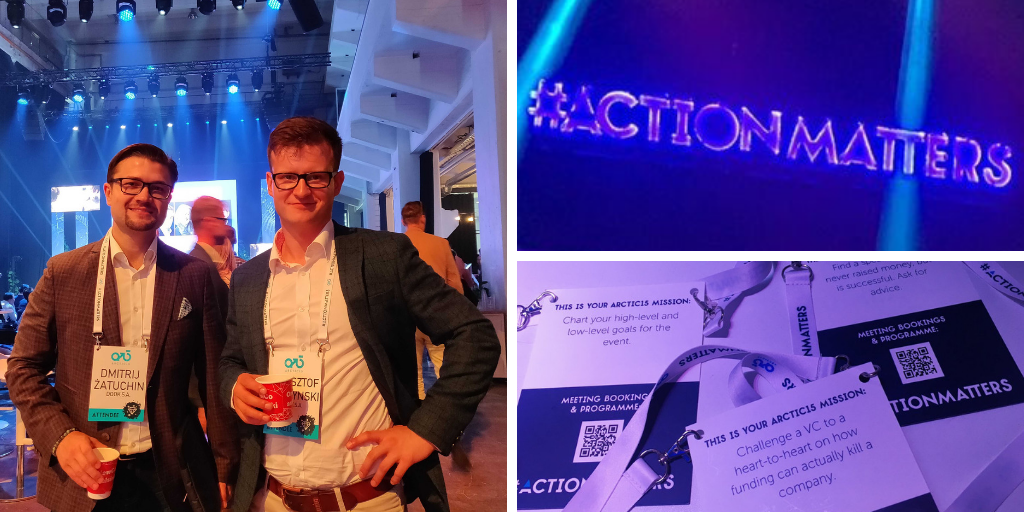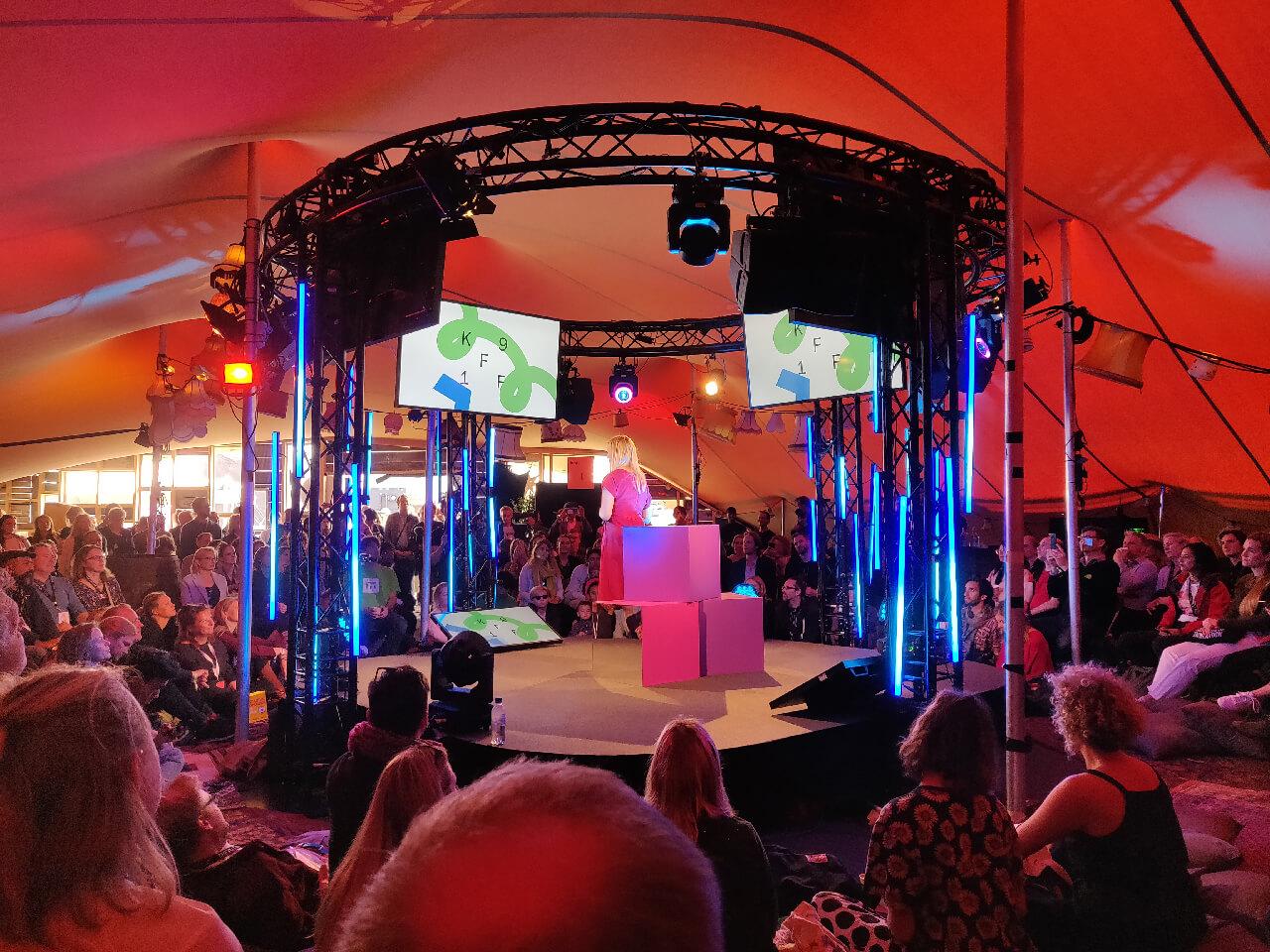CEOs insights – how to be prepared for superior business relations
Every company has its business life cycle and building long-term relations might have a bit different energy and course. We look for valuable insights from each meeting or event, and a lot of them are worth being shared.
A few thoughts from recent visits to the North wrote Dmitrij, our CEO on his Linkedin profile. We were curious about how it works in other companies. Does our understanding of #dochange, growing social impact in making business, is common? We asked a few CEOs we’ve met at Arctic15, Katapult Future Fest and Oxygen2050 to share some thoughts with us.
You find some answers about the reasons for participating in events like Arctic15 and what is crucial in creating an ethical company nowadays. We asked a few CEOs we have met at Arctic15 to share some thoughts with us: Marc Wesselink, co-founder of venturerock, venture builders from The Netherlands, Veli Eloranta, CEO @Nordic247, an innovative product company from Finland, Tarmo Härmaorg, CEO @ Ten Twelve, a hardware product development company from Estonia, Dima Syrotkin, CEO @ Panda Training, a Finnish startup from EdTech industry and Dima Sarle, CEO @ ArcticStartup and co-founder @ Arctic15.

What is crucial to be well prepared for the event like Arctic15 or Oxygen2050?
Mark Wesselink: Refer due diligence on the people that you are talking to and make sure they are relevant to you. It often happens that they do not know who they are talking to… Better to speak with three super relevant people than 20 random people.
Dima Syrotkin: Utilize the matchmaking app to the fullest if there is one, check participants, and define whom you want to talk to beforehand.
Tarmo Härmaorg: Do your homework. I believe it’s crucial to establish goals that you intend to accomplish. Answer yourself why you go there. Do you have a strategy or several how to achieve goals? Whom you’re looking to meet and what would be the mutual value you could create?
Dima Sarle: One way to understand it, though, is to see how action can help you prepare. Book enough meetings in advance and figure out what are all the possible actions you can take (side events, sauna experiences, talks, workshops, etc.). Most importantly – leave time for randomness. That means leaving gaps in your calendar – for the unexpected. If you plan your life to the very minuscule of details, you leave no space for magic to take place. Then you complain that nothing exciting happens to you. My goal for Arctic15 is to create an environment where unexpected moments can happen with a higher degree of probability than at other events. We dabble in randomness. The more action you take, the more randomness you introduce, the higher the chance for something new and unexpected to happen.
Dmitrij Żatuchin: Well prepared means I’ve answered already to such questions like:
- Why I am doing in my life what I am doing?
- Does attending that event makes any impact on getting closer to the goal I set as my life purpose?
- Will I get substantive learning to kick forward the execution of the company’s strategy for growth?
- Do the values evangelized at that event have a common sense with what the company’s culture is?
Identifying the ‘yes’-answers with the “why is that yes” will give high chances to start meaningful relationships which might bring improvements to both sides engaged in that.
It seems that checking attendees in a matchmaking app before the event and being focused on one’s goals is equally important as being open-minded for connecting dots and thinking where are sweet spots for both sides.

We asked for some advice on building long-term relationships after events. Veli Eloranta points out that preparation is as important as finding a match. The majority of participants are seriously at events, and they look for like-minded professionals. Dima Syrokin also emphasizes the importance of meetings with open-minded clients during and after the event. It’s hard to disagree with Marc Wesselink that building long-term relations is an art of balancing between giving and receiving added value. It’s essential to understand other’s goals and keep an open mind about the possible alignments and alliances. Tarmo Härmaorg mentions the most valuable or meaningful relationships may not exactly the ones you set up to establish in the first place.
What is essential in building (an ethical and sustainable) business, in your opinion?
Mark Wesselink: Try to focus on the problem of your future business partner first and build a relationship on top of it.
Veli Eloranta: Be patient to get proper funding. Otherwise, it might lead to a situation where you have to “cut corners” and possibly make a decision that is against these great principles in your business. Remember about the community you are living in as well.
Tarmo Härmaorg: Answer the question: What’s your mission and what are the meaningful things you intend to achieve? Follow your heart and be open and honest to yourself and others. I also think it’s very important to keep in touch, evaluate, and re-evaluate your goals and have a strong inner understanding what’s the value you are adding to your or someone else’s life. For most people, it’s something other than just making money. Have the courage and inner commitment to follow that mission. Use that values as an anchor or pivot point no matter what you do.
Dima Syrotkin: Include ethics and integrity in the agenda, have a conversation about, realize why it’s important for your business and how you would put it into processes. Truth be told, I am still discovering this question myself in my startup.
Dmitrij Żatuchin: Trust. You should run a good business and inspire your employees by i.e. giving an opportunity that their job will bring something more than just another-delivered-project or product to be consumed. We are in an era where CxO’s are judged for the impact the firm makes. Making the offering in a line with creating value and contribution to society will result in trust inside the organization and empowerment of CxO’s as a feedback loop for further strategic decisions on how they grow a business.
Dima Sarle: We absolutely must take the path which leads towards humanity’s salvation. The full answer is available here. The recap from the blog post:
- Select other metrics for your measure of success – not just profit.
- Remove ego from your work. Do not chase unicorns.
- Select ethical goals and your own set of principles.
- Do not compete, and be okay with others doing better than you.
- Chase impact.
- Remove the hierarchy and give everyone full responsibility.
- Hire people who are entirely on board with the above.

Companies from the North are focused primarily on creating added value to the environment and society. Building companies which can make a real positive impact on people’s life is a challenge worth every penny.
Most of our interviewees pointed out relevant experience and a similar business model and values as the main reasons or differentiators for choosing a tech partner. On the other hand, Dima Syrotkin highlighted that keeping tech inside the company is often the competitive advantage and allows companies to grow more comfortable with fewer complications down the road. He considers such cooperation mainly in one-off projects where the risk is low and known. The other situation of starting cooperation with external high-skilled tech partner is the need for specific expertise and experience.
Curious how to get out of the box for today’s ICT business leaders from CEE? Read this article.
Would you like to meet with us and share your experience? Great! Let’s meet Dmitrij Żatuchin and Krzysztof Pieczyński at one of those events:
- The Shift Business Festival, 29.-30.8.2019, Turku FI
- TechBBQ, 18-19.09.2019, Copenhagen DK
- Oxygen2050 20.11.2019, Helsinki FI
- Slush 21-22.11.2019, Helsinki FI
- TechCrunch, 11-12.12.2019, Berlin GER
Let us know what is most important in building a sustainable business, in your opinion.
Author: Katarzyna Leszczyńska-Bohdan


